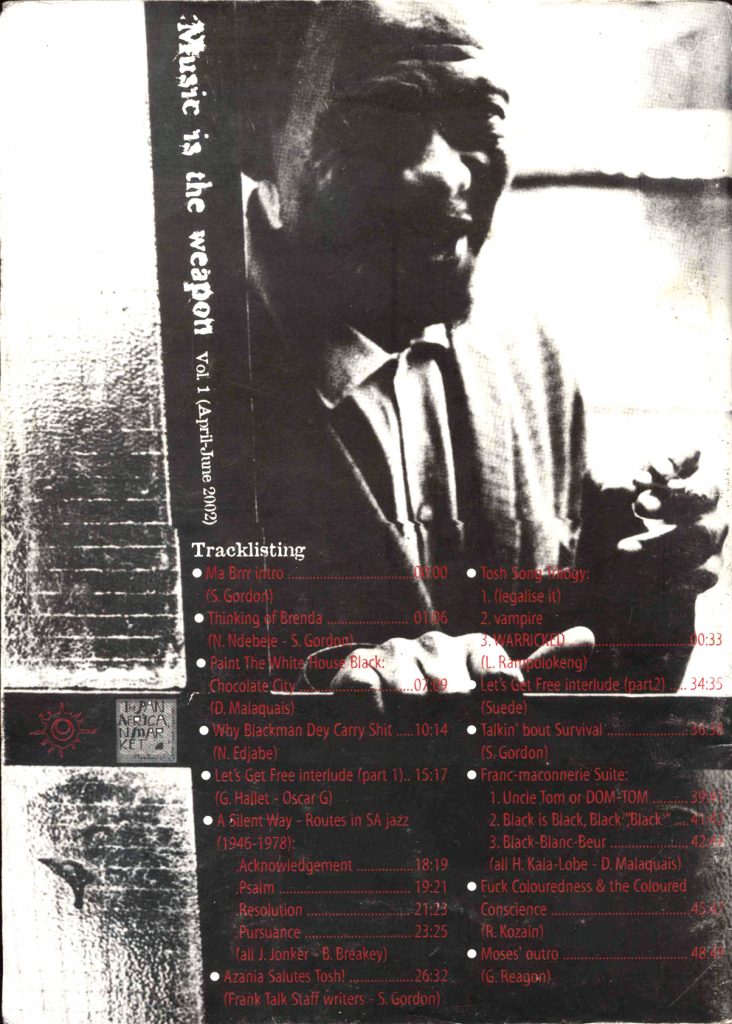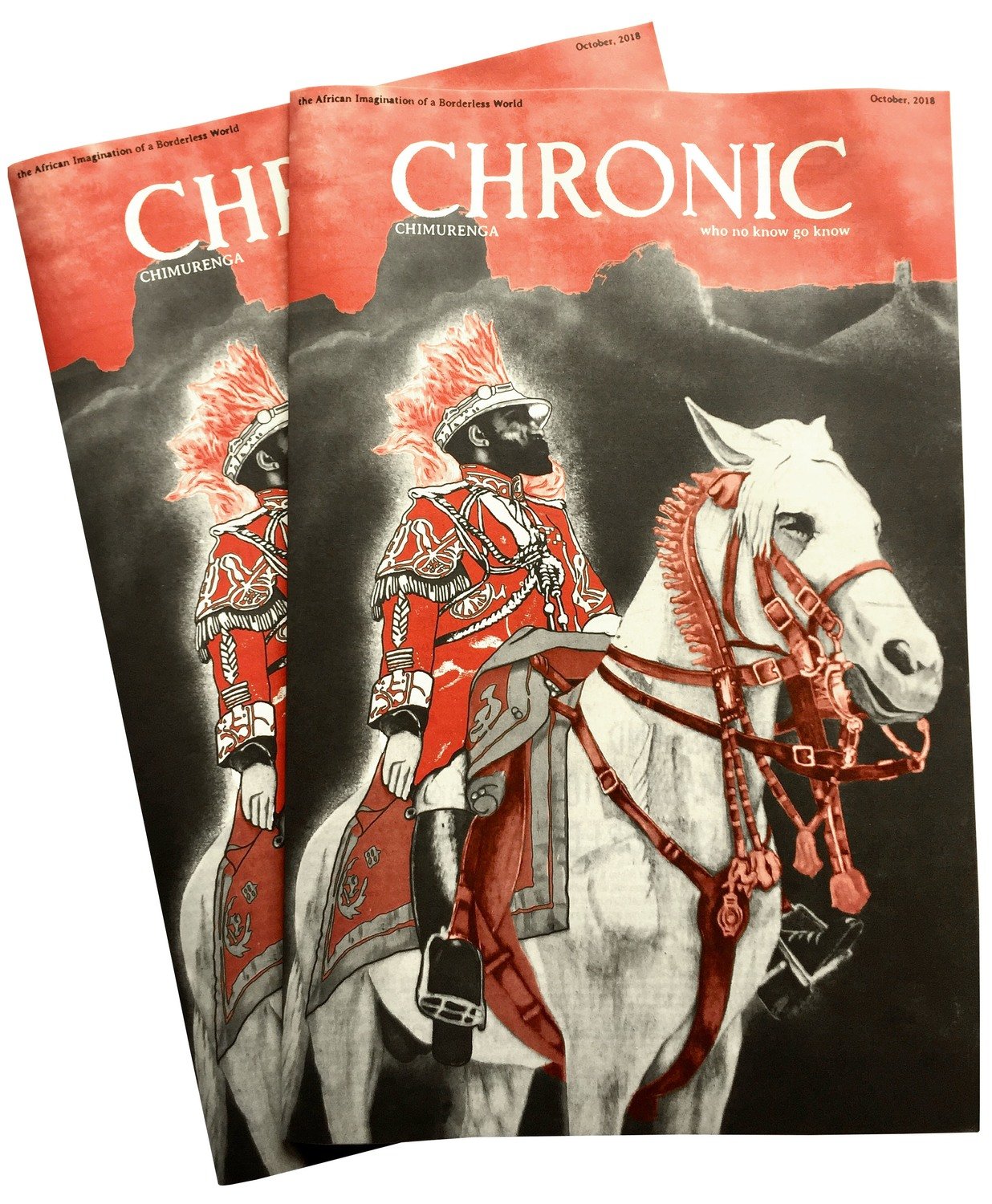“…The struggle of black people inevitably appear in an intensely cultural form because the social formation in which their distinct political traditions are now manifest has constructed the arena of politics on ground overshadowed by centuries of metropolitan capitalist development, thereby denying them recognition as legitimate politics. Blacks conduct a class struggle in and through race. The BC of race and class cannot be empirically separated, the class character of black struggles is not a result of the fact that blacks are predominantly proletarian, thought this is true…”- (Frank Talk Staff Writers in ‘Azania Salutes Tosh’ – circa 1981)

front cover:
Tosh by Steve Gordon
back cover:
Kippie by Basil Breakey
Chimurenga Chronic: On Circulations and the African Imagination of a Borderless World (October 2018)
Chimurenga Chronic: On Circulations and the African Imagination of a Borderless World (October 2018)
What is the African imagination of a borderless world? What are our ideas on territoriality, borders and movement? How to move beyond so-called progressive discourse on “freedom of movement” and “no borders” against the backdrop of deeply Western individualist thinking, something that ultimately keeps up and even reinforces the neoliberal market logic and the nation state (that, as we know, is more and more becoming the security service of a market place, than provider of any social securities of their populations). Much of this discourse is in the pursuit of individual freedoms – broadly framed as “human rights”.
This issue of the Chronic highlights ideas of circulation that include the notion of justice and collective freedoms. Conceptions of community that do not enforce transparency but rather make room for what Glissant called “opacity”. The African world has produced plenty of these, from non-universal universalisms, relational ontologies, refusing that which has been refused to you, and “keeping it moving”.

